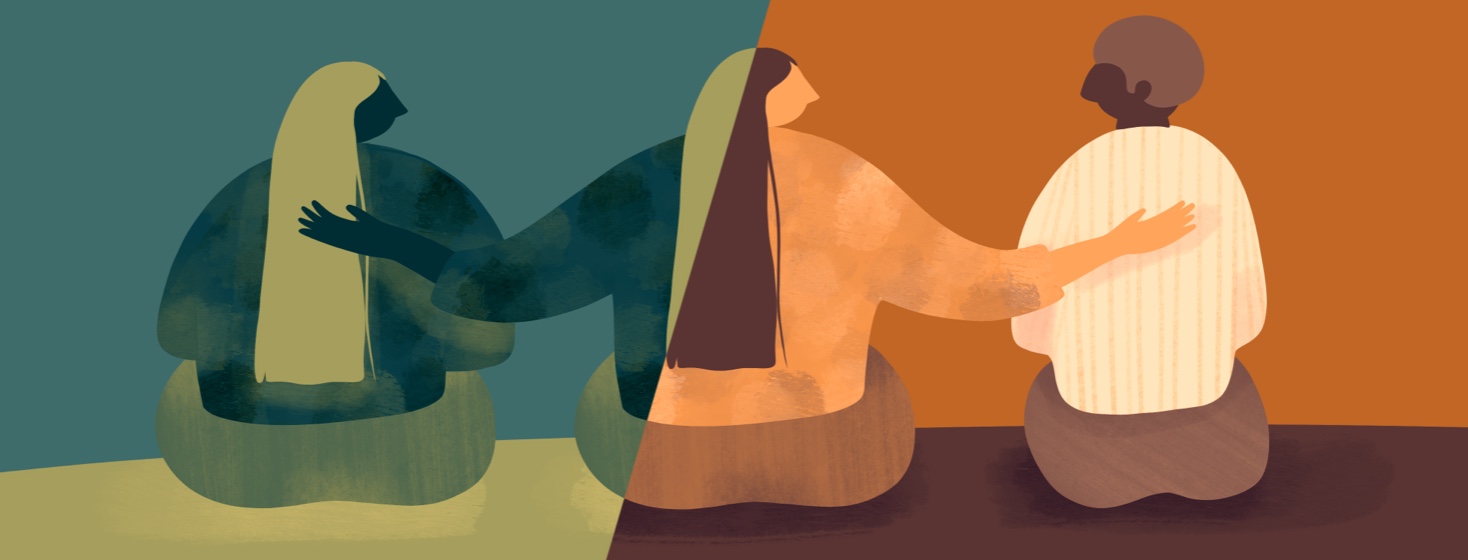6 Resources For Beating The Caregiver Blues
In my advocacy work as a person whose loved one has schizophrenia, I try to focus on the positive – but that doesn't mean I don't have bad days. Caring for a loved one with a serious mental illness makes huge demands on us – emotional, physical, and financial – and too often we are left exhausted, anxious, and burnt out.
Research suggests depression rates among caregivers of people who have schizophrenia or another serious mental illness to be much higher than in the general population.1
This or That
Are you a caregiver for someone with schizophrenia?
Resources for caregivers, parents, and loved ones
But here's some good news: in recent years there has been an uptick in recognition of the need for services for caregivers, and a corresponding increase in psychoeducation and counseling programs as well as respite care and other community resources.
My 6 recommendations for schizophrenia caregivers
1. Find a support group
A support group for caregivers of individuals with mental illness is a good place to start. NAMI (the National Alliance on Mental Illness) and SPAA (the Schizophrenia & Psychosis Action Alliance) both offer such groups, with online options for those unable to attend in person.
You may also check local community organizations or religious institutions to see if they offer support services for caregivers, even if they are not targeted specifically at those supporting people with serious mental illness. Not only might they provide practical assistance like transportation or respite care, they’ll get you out of the house and reduce the risk of social isolation, which has always been one of my top triggers for depression.
2. Learn more
Arming yourself with knowledge and information is a proven coping strategy. The gold standard in peer-led family psychoeducation is NAMI's Family-to-Family program, a free, evidence-based 12-week course for family and friends of people who live with serious mental illness.
In addition to giving you a deeper understanding of the science behind schizophrenia, the course teaches strategies and features presentations by peers with lived experience and also an introduction to navigating the local healthcare system. (I found it so valuable that I trained to become a presenter and co-led classes near me.)
3. Listen to the experts
Check out webinars and workshops hosted by mental health organizations and advocacy groups. I was lucky to attend one that featured Dr. Xavier Amador, whose LEAP program has helped so many of us learn effective techniques for communicating with someone in psychosis, but you can also find talks by Dr. Amador and other respected educators and advocates on YouTube.
You might start with an online search for resources for schizophrenia caregivers, but do be wary of those sponsored by for-profit treatment centers, drug companies, and others with a vested interest in a particular point of view. I'm a firm believer in recovery-based and peer-led organizations which put the person with lived experience in the lead, where they belong.
4. Consider therapy
At various times on my journey I also found individual and group therapy including cognitive behavioral therapy (CBT) and dialectical behavior therapy (DBT) extremely helpful. Look for a therapist who is trained in the specific needs of caregivers or has knowledge or – preferably – lived experience with serious mental illness.
If your loved one also has a substance addiction, which is estimated to occur in about half of people with schizophrenia, seek a therapist with lived experience of recovery.
5. Look into recovery programs
Speaking of addiction, one of the best things I've done for myself as a caregiver is to join a 12-step recovery program. AlAnon, the sister program of Alcoholics Anonymous, is attended by families and friends of alcoholics – but many groups welcome those whose loved ones have mental health conditions or are addicted to other substances.
There are also programs for people whose loved ones have drug addictions (Narcotics Anonymous) and who have codependence issues (Codependents Anonymous), which is a challenge for many of us caregivers.
I started going to AlAnon because of my fears about a loved one's substance use, but I've kept going for over a decade now because AlAnon teaches and reinforces the principles of acceptance and detachment that are critical to every caregiver's peace of mind.
6. Get involved
Finally, I'll mention that some people find great comfort and meaning in getting involved in advocacy and policy efforts aimed at legislation that supports research, resources and funding for people with schizophrenia. If this interests you, check out NAMI's Policy Priorities and contact your local NAMI office to learn about policy efforts affecting your state or county.
Taking the first step
In my experience, there is no one-size-fits-all coping solution for caregivers, but as our needs are increasingly recognized by our communities, policy makers, and healthcare providers, my hope is that all of us will have a bounty to choose from. Meanwhile I wish you all the courage to take the first step.

